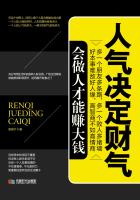"There was one more military spectacle, a public breakfast which took place on the second of October. Though none of the Royal Family appeared at it, it was no less injurious to their interests than the former. The enemies of the Crown spread reports all over Paris, that the King and Queen had manoeuvred to pervert the minds of the troops so far as to make them declare against the measures of the National Assembly. It is not likely that the Assembly, or politics, were even spoken of at the breakfast; but the report did as much mischief as the reality would have done. This was quite sufficient to encourage the D'ORLEANS and Mirabeau faction in the Assembly to the immediate execution of their long-meditated scheme, of overthrowing the monarchy.
"On the very day following, Duport, De Lameth, and Barnave sent their confidential agent to apprise the Queen that certain deputies had already fully matured a plot to remove the King, nay, to confine Her Majesty from him in a distant part of France, that her influence over his mind might no farther thwart their premeditated establishment of a Constitution.
"But others of this body, and the more powerful and subtle portion, had a deeper object, so depraved, that, even when forewarned, the Queen could not deem it possible; but of which she was soon convinced by their infernal acts.
"The riotous faction, for the purpose of accelerating this denouement, had contrived, by buying up all the corn and sending it out of the country, to reduce the populace to famine, and then to make it appear that the King and Queen had been the monopolisers, and the extravagance of Marie Antoinette and her largesses to Austria and her favourites, the cause. The plot was so deeply laid that the wretches who, undertook to effect the diabolical scheme were metamorphosed in the Queen's livery, so that all the odium might fall on her unfortunate Majesty. At the head of the commission of monopolisers was Luckner, who had taken a violent dislike to the Queen, in consequence of his having been refused some preferment, which he attributed to her influence. Mirabeau, who was still in the background, and longing to take a more prominent part, helped it on as much as possible. Pinet, who had been a confidential agent of the Duc d'Orleans, himself told the Duc de Penthievre that D'ORLEANS had monopolised all the corn. This communication, and the activity of the Count Fersen, saved France, and Paris in particular, from perishing for the want of bread. Even at the moment of the abominable masquerade, in which Her Majesty's agents were made to appear the enemies who were starving the French people, out of revenge for the checks imposed by them on the royal authority, it was well known to all the Court that both Her Majesty and the King were grieved to the soul at their piteous want, and distributed immense sums for the relief of the poor sufferers, as did the Duc de Penthievre, the Duchesse d'Orleans, the Prince de Conde, the Duc and Duchesse de Bourbon, and others; but these acts were done privately, while he who had created the necessity took to himself the exclusive credit of the relief, and employed thousands daily to propagate reports of his generosity. Mirabeau, then the factotum agent of the operations of the Palais Royal and its demagogues, greatly added to the support of this impression. Indeed, till undeceived afterwards, he believed it to be really the Duc d'Orleans who had succoured the people.
"I dispensed two hundred and twenty thousand livres merely to discover the names of the agents who had been employed to carry on this nefarious plot to exasperate the people against the throne by starvation imputed to the Sovereign. Though money achieved the discovery in time to clear the characters of my royal mistress and the King, the detection only followed the mischief of the crime. But even the rage thus wickedly excited was not enough to carry through the plot. In the faubourgs of Paris, where the women became furies, two hundred thousand livres were distributed ere the horror could be completely exposed.
"But it is time for me to enter upon the scenes to which all the intrigues I have detailed were intended to lead--the removal of the Royal Family from Versailles.
"My heart sickens when I retrace these moments of anguish. The point to which they are to conduct us yet remains one of the mysteries of fate."















